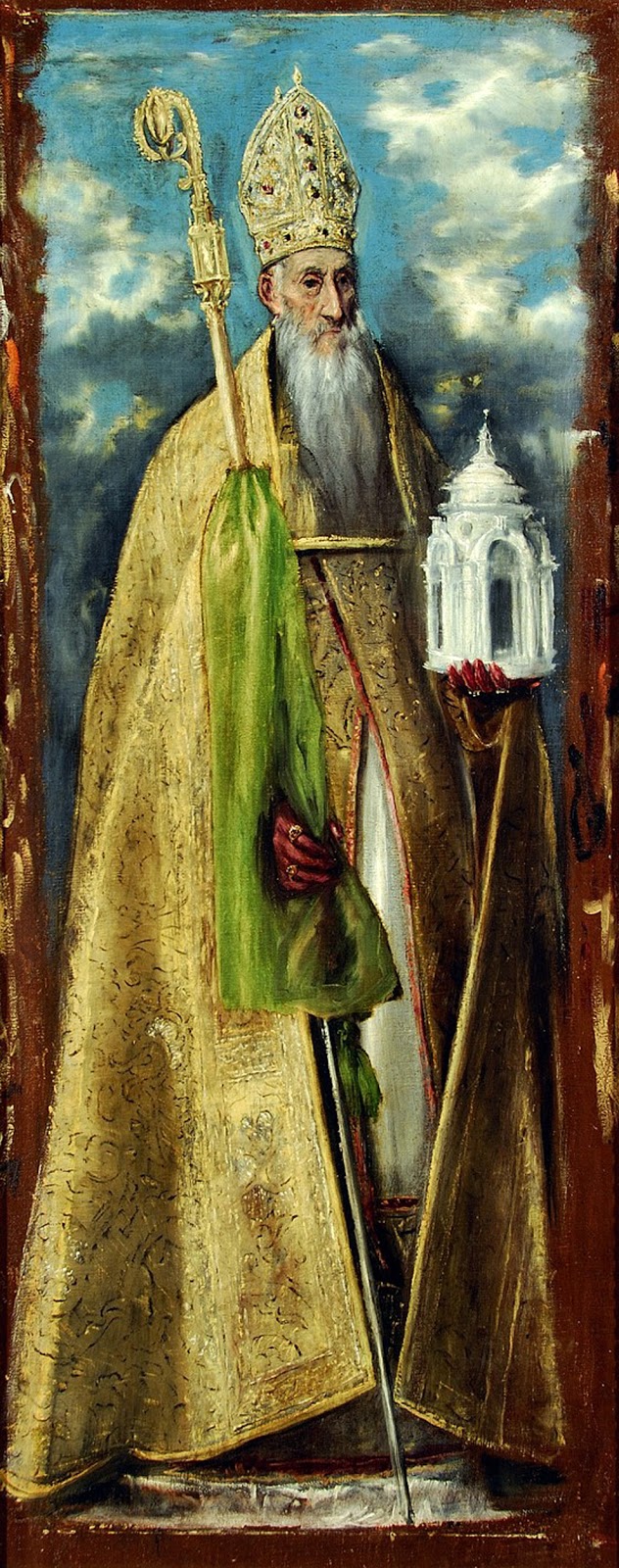Augustine, << AW guh `steen` or aw GUHS tihn, >> Saint (354-430), was one of the greatest leaders of the early Christian church. His writings had a strong influence on medieval religious thought. Augustine’s ideas also appeared in the teachings of John Calvin, Martin Luther, and other Protestant reformers. He influenced such philosophers as Immanuel Kant and Blaise Pascal.

His life.
Augustine was born on Nov. 13, 354, in Tagaste, a city near what is now Constantine, Algeria. His name in Latin was Aurelius Augustinus. His mother, Saint Monica, was a devout Christian. His father was a pagan. As a young man, Augustine pursued worldly success and was attracted to several non-Christian movements. He described his early life and spiritual struggles in Confessions, one of the first great autobiographies.
In the early 380’s, Augustine taught rhetoric in Carthage and Rome and then in Milan, Italy. Some friends in Milan encouraged him to read the works of the Greek philosophers called neoplatonists (see Neoplatonism ). These writings and the sermons of Saint Ambrose, the bishop of Milan, helped him overcome the intellectual obstacles to accepting Christianity. In 386, Augustine decided to devote himself to the faith, and Ambrose baptized him the next year.
Soon afterward, Augustine returned to Tagaste, where he organized a community of believers. In 391, he traveled to nearby Hippo. The Christian congregation there persuaded him to stay. He was ordained as a priest in Hippo in 391. From 396 until his death on Aug. 28, 430, he served as bishop of Hippo. His feast day is August 28.
His beliefs
can be divided into three main groups: (1) God and the soul, (2) sin and grace, and (3) the church and the sacraments.
God and the soul.
Augustine’s study of neoplatonism convinced him that God is present in the soul of every human being. He believed that people should direct their attention to God and not be distracted by the cares and pleasures of the world.
Sin and grace.
Augustine preached that people could not change their sinful ways unless helped by the grace of God. He believed that God chooses only certain individuals to receive his grace. This belief forms part of a doctrine called predestination or election.
The church and the sacraments.
Augustine believed that people could not receive God’s grace unless they belonged to the church and received the sacraments. A group of clergymen in northern Africa said grace could not be given unless the clergy itself was perfect. But Augustine declared that God could by-pass human weaknesses through the sacraments. Augustine’s book The City of God presents the history of humanity as a struggle between people who depend on God and those who rely on themselves.
See also Ambrose, Saint ; Neoplatonism .
